Vietnam News Today (Feb. 3): Japanese Businesses Eye Vietnam as Attractive Investment Destination
| Vietnam News Today (Feb. 1): Vietnam’s Lunar New Year Enchants Foreigners | |
| Vietnam News Today (Feb. 2): Bustling Export-import Activities Signal Boon Year Ahead |
| Vietnam News Today (Feb. 3) notable headlines Japanese businesses eye Vietnam as attractive investment destination Tet celebration helps OVs in Australia uphold traditional culture Cold air mass hits northern border, brings rain and cold temperatures Ho Chi Minh’s revolutionary activities in Hong Kong critical to Vietnam – China ties: expert Vietnam enters a new era: A future of strength, innovation, and prosperity Communist Party of Vietnam's journey to national prosperity Major airports welcome huge numbers of passengers on Tet last day World leaders extend congratulations on CPV’s 95th anniversary Establishment of CPV a turning point in Vietnam’s history: Chinese scholar |
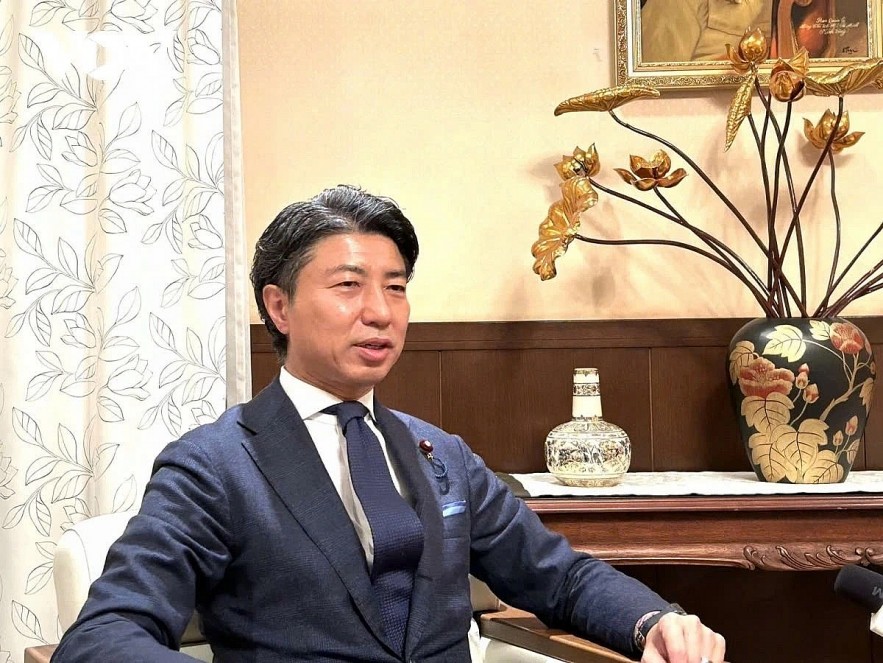 |
| Japanese lawmaker Aoyagi Yoichiro. |
Japanese businesses eye Vietnam as attractive investment destination
Huge development potential, a competitive workforce, a strategic geographical location, investment incentives and a growing consumer market are among factors that attract Japanese businesses into the Vietnamese market, said Japanese executives.
The Japan Bank for International Cooperation (JBIC) revealed in a recently conducted survey that Vietnam ranked second among the most attractive and promising foreign investment destinations for Japanese companies.
Currently, the Japanese economy is facing difficulties and challenges, forcing its businesses to look abroad with plans to expand markets, increase investment capital, and develop production facilities. In this context, Vietnam, with many advantages, continues to be considered an attractive investment destination and a ‘strategic’ choice for most Japanese companies.
Over the past three years, Vietnam has consistently risen in the rankings in surveys conducted by JBIC. It advanced from fifth place a few years ago to fourth place in 2022, and has maintained its second position since 2023.
According to Japanese economists, politicians, managers, and entrepreneurs, Vietnam has many factors that attract businesses, not only from Japan but also from many other countries.
“The first factor lies in the country’s enormous development potential. We gradually realized the attractiveness more than 10 years ago when we began investing in Vietnam,” shares Imano Hiroshi, vice chairman of THK, a leading Japanese company that manufactures precision mechanical components.
“Notably in recent years, many businesses from China, the Republic of Korea and Japan have made significant investments in Hanoi. In terms of development potential, Vietnam has a much larger advantage than other countries in the region. That’s why we have decided to continue our investment in the country,” states Hiroshi.
Since 2022, Vietnam has consistently ranked second, behind the United States, on the list of attractive destinations for Japanese companies, according to the Japan External Trade Organization (JETRO). When rating Vietnam, Japanese businesses and officials highly appreciate the quality of the country’s human resources and believe that Vietnam is an ideal destination for relocating production facilities from abroad, cited VOV.
Hoshino Mitsuaki, director general of the Bureau of Economy, Trade, and Industry for the Kyushu region under Japan’s Ministry of Economy, Trade, and Industry, points out that currently, Vietnam has a rich, trained workforce, especially a team of highly skilled engineers who can meet all job requirements. From this perspective, the two countries can complement each other.
“In my opinion, the two countries should start promoting cooperation, beginning with training and utilizing each side’s high-quality human resources,” suggests the official.
Economic experts also analyze that, while Vietnam’s previous advantage was its abundant, low-cost labour, today the increasing capabilities of its workforce have become a ‘formidable’ competitive advantage for the country in comparison to other investment destinations. However, some believe that Vietnam and Japan need to continue working together to address some existing issues in order to elevate bilateral cooperation to new heights.
Japanese lawmaker Aoyagi Yoichiro proposes that the two sides continue further improving the investment environment.
“In fact, Japanese companies still face some difficulties with administrative procedures when investing in Vietnam. Meanwhile, Vietnamese businesses also encounter similar challenges in Japan,” he points outsays.
“This is an issue that the parliaments and governments of both countries should collaborate to resolve. Last year, despite such difficulties, a Vietnamese company was listed on the Japanese stock exchanges. Such an effort is commendable and proves that if we work together, we can solve these issues.”
Japanese economists, politicians, lawmakers, managers, and entrepreneurs also agree that Vietnam’s selective investment attraction policies are proving effective. Together with its favourable geographical location and rich supply of high-quality human resources, Vietnam will continue to attract many investors, not only from Japan but from other countries in the region and worldwide, making a significant contribution to the country’s economic growth in the near future.
Tet celebration helps OVs in Australia uphold traditional culture
New Sunlight for Children wishes to connect with many other organisations to help uphold and popularize Vietnamese culture and maintain annual activities, including fundraising events, to assist disadvantaged children in the homeland.
The annual event, held on February 1 (the fourth day of the Year of the Snake), attracted a large number of overseas Vietnamese (OVs) in Sydney and locals.
It recreated a traditional Tet space with kumquat plants, peach and yellow apricot blossoms, and parallel couplets. Tet delicacies such as “banh chung” and “banh tet” (square and cylindrical glutinous rice dishes), along with candied fruit also added to the expats’ nostalgia for the homeland.
The event became vibrant with musical performances in the Vietnamese language by the children born in Australia but still educated on their origin. After that, children were given lucky money by elderly people as a traditional practice during Tet to wish them good health and good learning, according to VNA.
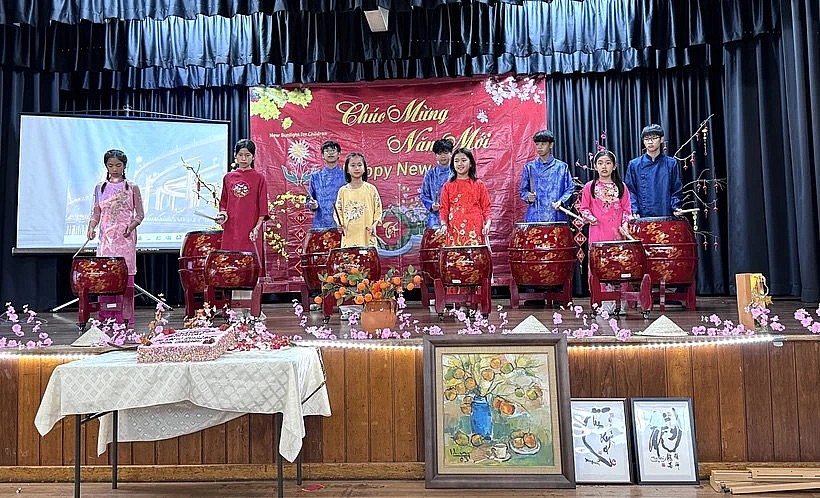 |
| A drum performance by children at the Tet celebration held by New Sunlight for Children. (Photo: VNA) |
Bui Duong Hien, a founding member and Vice President for group development at New Sunlight for Children, said that founded in April 2015, it is a social and charitable group of OVs who share the intention of assisting less privileged children in Vietnam to access learning opportunities to have a brighter future.
With its membership now reaching 400, over the last 10 years, through various activities such as making calendars, producing paper bags, holding walking and cycling programs, and organising Tet celebrations, New Sunlight for Children has raised over 92,000 AUD (57,300 USD) and presented more than 500 gift packages to support children with disadvantages in Vietnam.
In addition, Hien noted, it has coordinated with Blue Dragon Children’s Foundation, a non-governmental charity of Australia operating in Vietnam since 2002, to help disabled children, street children, and victims of human trafficking. It has donated over 90,000 AUD to this organisation so far.
Ho Minh Giang, a founding member and Vice President for external relations and communications at New Sunlight for Children, said the group wishes to connect with many other organisations to help uphold and popularize Vietnamese culture and maintain annual activities, including fundraising events, to assist disadvantaged children in the homeland.
He also expressed his hope that the group’s activities for poor students will be expanded to more localities in Vietnam.
Cold air mass hits northern border, brings rain and cold temperatures
A cold air mass has moved closer to Vietnam’s northern border and will begin affecting the northern region on February 2 evening, bringing rain and cold temperatures, according to the National Centre for Hydro-meteorological Forecasting.
Meteorologists said the cold air mass will impact the northeastern region, followed by the north-western, north-central, and central regions, and some areas in the south-central region. Inland winds will shift to the northeast, gusting between 12 to 28kph on average and even to 49kph in some areas.
Starting February 2 evening, northern Vietnam will turn cold, with mountainous areas experiencing severe and extreme cold. On February 3, north-central Vietnam will remain cold throughout the day, while localities stretching from Quang Binh to Hue will become cold at night, reported VOV.
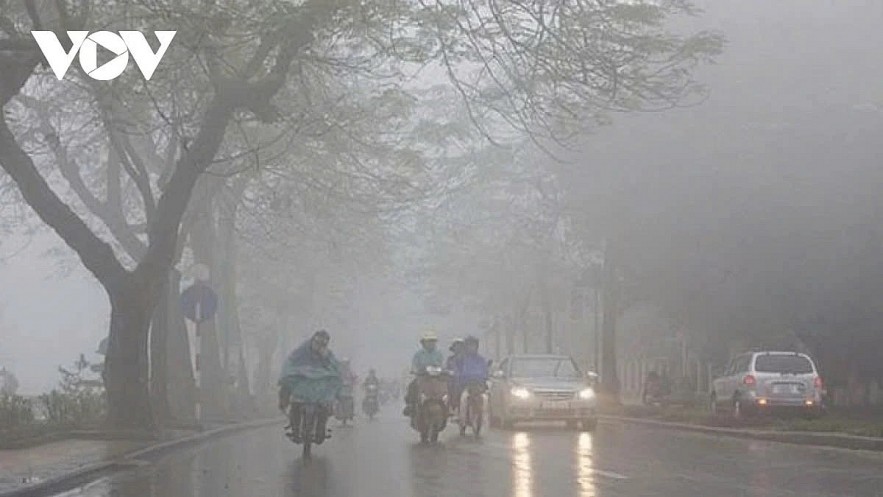 |
| A new cold air mass is hitting Northern Vietnam, sending temperatures falling to 11-14°C in the lowlands and 8-10°C in the highlands. |
The cold air mass will send temperatures dropping to 11-14°C in the lowlands and 8-10°C in the highlands and sometimes below 6°C.
Due to the impact of the cold air mass, scattered showers will occur in northern and northern central Vietnam from February 2 evening to February 3. From February 3-4, central Vietnam will see showers, with some areas experiencing moderate to heavy rain and thunderstorms.
Ho Chi Minh’s revolutionary activities in Hong Kong critical to Vietnam – China ties: expert
Dr. Sun Wenbin, Director of the Hong Kong Chronicles Institute, has highlighted the importance of President Ho Chi Minh’s revolutionary activities and establishment of the Communist Party of Vietnam (CPV) in Hong Kong to the Vietnam – China relations.
Talking to the Vietnam News Agency ahead of the CPV’s 95th founding anniversary (February 3, 1930–2025), Sun noted that in the 1920s, the Vietnamese leader was an active revolutionary in France, where he met and had close relations with some patriotic youths of China studying there such as Xiao San, Zhou Enlai, and Li Fuchun.
From 1924 to 1927, he carried out revolutionary activities and worked with some leaders of the Communist Party of China in Guangzhou. There, with support from Chinese comrades, he gradually completed preparations in terms of theory, personnel, and organisation to chair the establishment of the CPV in Hong Kong on February 3, 1930, cited VNA.
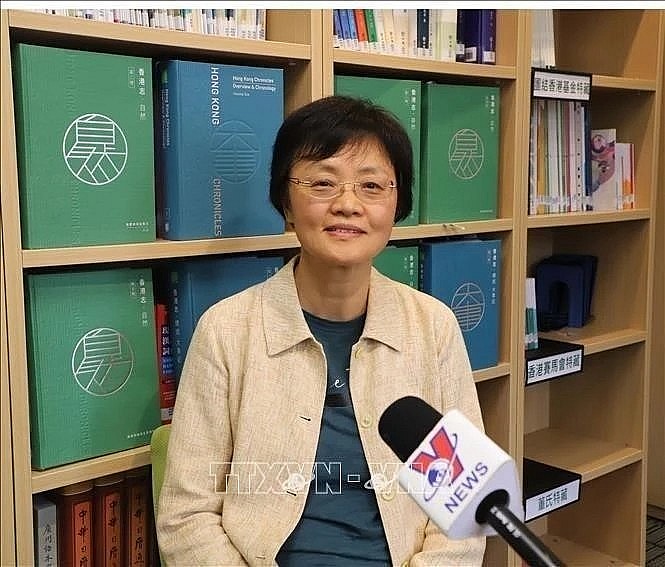 |
| Dr. Sun Wenbin, Director of the Hong Kong Chronicles Institute (Photo: VNA) |
The close-knit and sincere relationship between the two countries’ communists has been increasingly reinforced, especially after the birth of the People’s Republic of China on October 1, 1949 and during the Vietnamese people’s resistance wars, Sun said.
At that time, she added, the images of President Ho Chi Minh continuously appeared on the People’s Daily and some other major newspapers of China. Many Chinese people also called him “Uncle Ho” as the Vietnamese did.
The time-tested friendship between Vietnam and China, including the meaningful stories about the time President Ho Chi Minh carried out revolutionary activities and established the CPV in Hong Kong, forms a solid foundation for the two sides to continue strengthening cooperation for common development and a better and happier life for their people, according to Sun.
Vietnam enters a new era: A future of strength, innovation, and prosperity
The first days of 2025 mark the beginning of a historic chapter for Vietnam - a time of unprecedented growth and transformation.
As the country moves forward, it carries the momentum of remarkable economic achievements, ambitious infrastructure projects, and a strong national vision.
A nation rising to new heights
The Vietnamese economy has defied global challenges to secure an impressive 7% growth rate in 2024, positioning itself among the fastest-growing economies in the world.
More than just a single economic victory, this success represents the collective progress of the entire nation, fueled by strategic development and the resilience of its people.
Vietnam is undergoing a significant political and administrative transformation. With a more efficient and streamlined government structure, the country is ensuring that its institutions are prepared for the demands of a new era.
At the same time, major infrastructure projects - such as Long Thanh International Airport, the North-South Expressway, high-speed rail, Can Gio seaport, and the Ninh Thuan Nuclear Power Plant - are either nearing completion or beginning construction. These projects symbolize Vietnam’s bold commitment to modernization and global competitiveness.
A thriving workforce and strategic investments
Vietnam is no longer just a country of potential - it is a nation that has firmly established its role in the global economy. The country has cultivated a highly skilled workforce for Industry 4.0 and attracted massive investment from multiple economic sectors, ensuring sustainable growth.
This rapid development is driven by a national spirit of unity and resilience. From overcoming colonial rule to leading independence movements, Vietnam has consistently turned adversity into strength.
Today, the nation’s diplomatic influence continues to expand, with diplomatic ties established with nearly every UN member state and a commitment to neutrality in global conflicts, VNN reported.
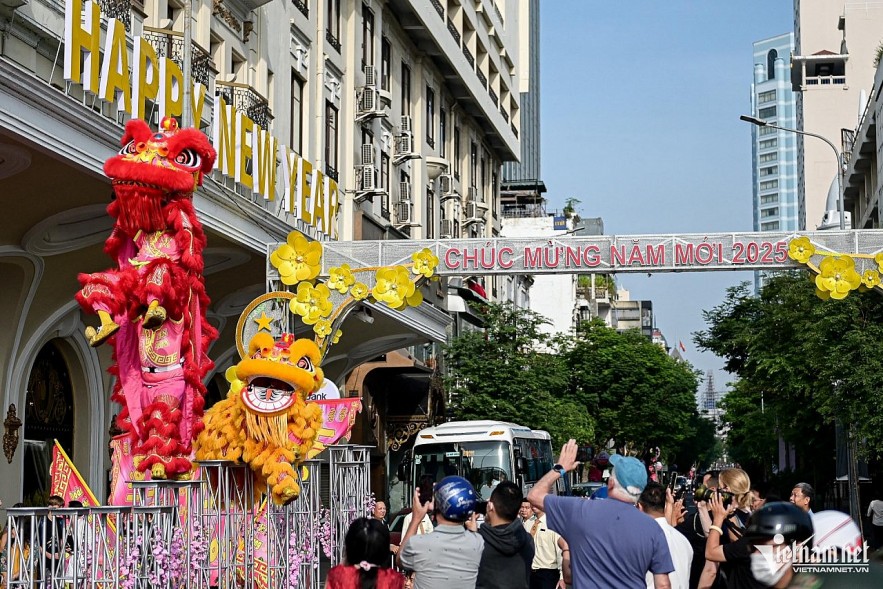 |
| Vietnam has built a highly skilled workforce for Industry 4.0 and attracted massive investment from multiple economic sectors. Photo: Nguyen Hue |
These achievements cannot be bought - they are the result of centuries of unwavering national identity and a commitment to justice and righteousness. The philosophy of “using virtue to overcome brutality” has guided Vietnam through history and continues to shape its modern success.
Embracing the future with innovation and ambition
Vietnam’s new era is not just about continuing past successes; it is about actively shaping the future. The country has embraced Industry 4.0 with a commitment to developing its own digital and technological ecosystem.
The days of Vietnam being seen as merely a manufacturing hub are over - the country is now positioning itself as a leader in high-tech industries, from rare earth and tungsten processing to semiconductor production and nuclear energy.
At the 13th Central Committee Conference on January 23, 2025, General Secretary To Lam set forth an ambitious vision for Vietnam’s economic growth, predicting double-digit GDP expansion in the near future.
While such a target may have seemed unrealistic in previous decades, the rapid progress of 2024, with a 7% GDP growth rate, suggests that this goal is well within reach.
Vietnam’s economy is now driven by a diverse range of investments. Foreign direct investment (FDI) continues to flow in, but equally significant is the rise of domestic private enterprises. Billion-dollar Vietnamese corporations and state-led initiatives - such as Viettel, the Ninh Thuan Nuclear Power Plant, and high-speed rail development - are paving the way for economic self-reliance. Meanwhile, offshore oil exploration, rare earth extraction, and domestic industrial production are ensuring Vietnam’s long-term economic sustainability.
As Vietnam moves further into 2025, the country’s focus is clear: innovation, self-sufficiency, and global integration. The dream of standing shoulder to shoulder with the world’s leading economies - first envisioned by President Ho Chi Minh - no longer seems distant. Instead, it is becoming a tangible reality, built on the foundations of resilience, vision, and determination.
Vietnam is no longer merely a participant in the global economy - it is a rising force, ready to leave a lasting impact on the world stage.
 | Vietnam News Today (Jan. 30): Friendship, mutual understanding, assistance – foundations of Russia-Vietnam ties: expert; New visa exemption policy expected to give a boost to ... |
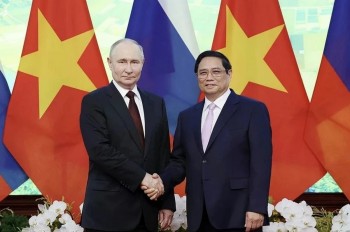 | Vietnam News Today (Jan. 31): Traditional Friendship Shapes Future Vietnam – Russia Cooperation Vietnam News Today (Jan. 31): Traditional friendship shapes future Vietnam – Russia cooperation; Bolivia treasures friendship, cooperation with Vietnam; Sanguine outlook ahead for Vietnamese economy ... |
In topics
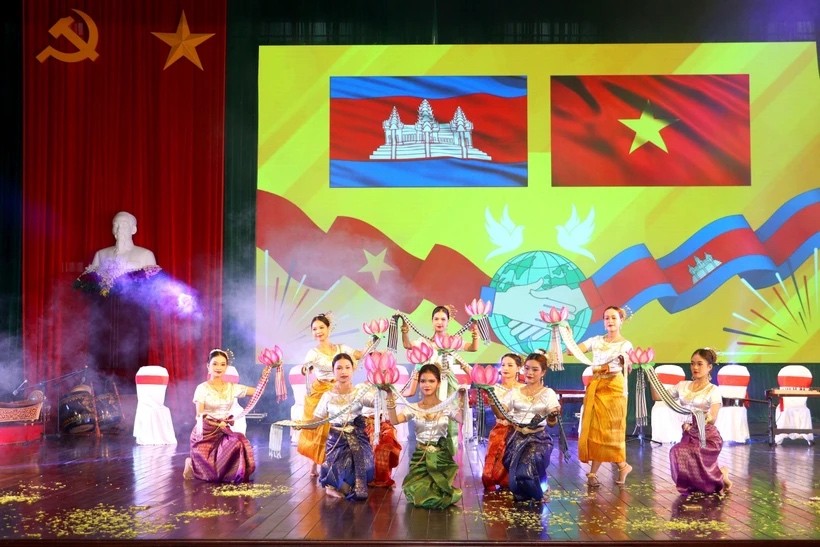 National
National
Vietnam News Today (Jun. 16): Vietnam–Cambodia Art Exchange Promotes Cultural Ties
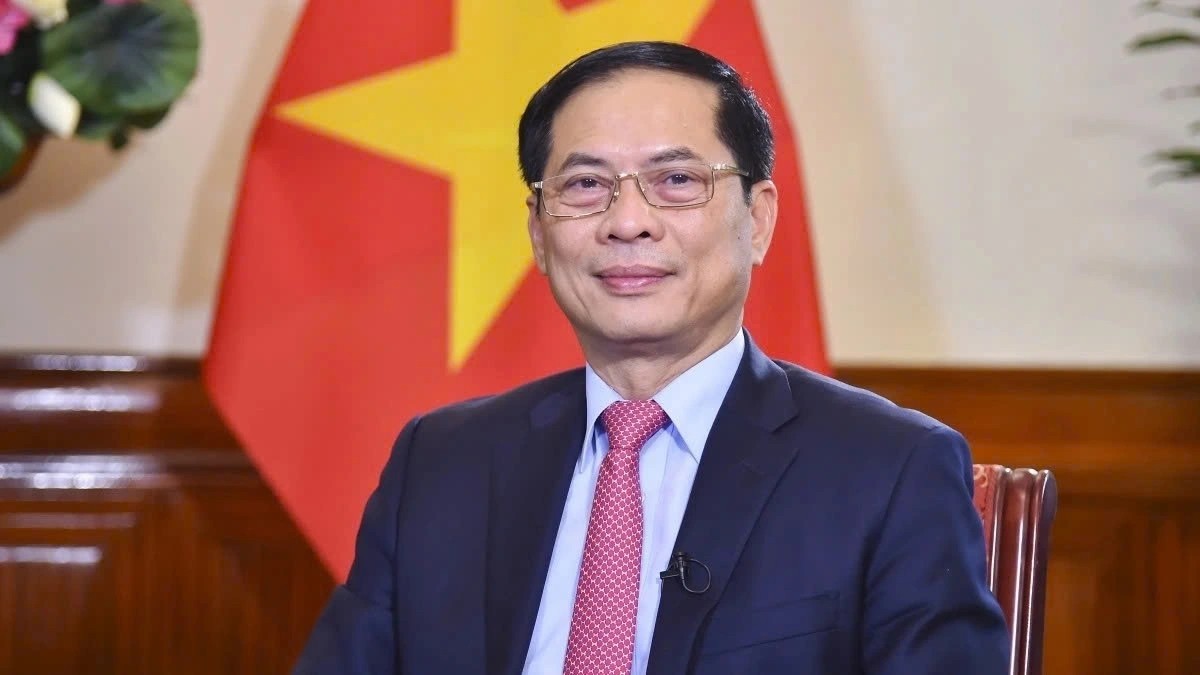 National
National
Vietnam News Today (Jun. 13): PM Pham Minh Chinh’s Europe Trip Yields Substantive Outcomes
Recommended
 National
National
Vietnam and France Deepen Strategic Partnership, Expand Trade and Market Access
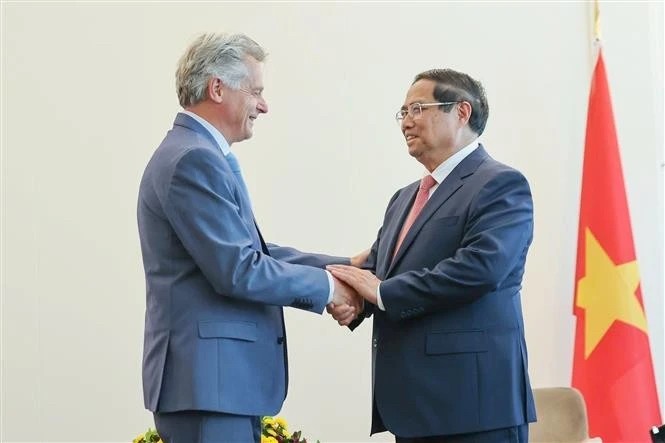 National
National
Vietnam News Today (Jun. 11): Vietnam Treasures Comprehensive Strategic Partnership with France
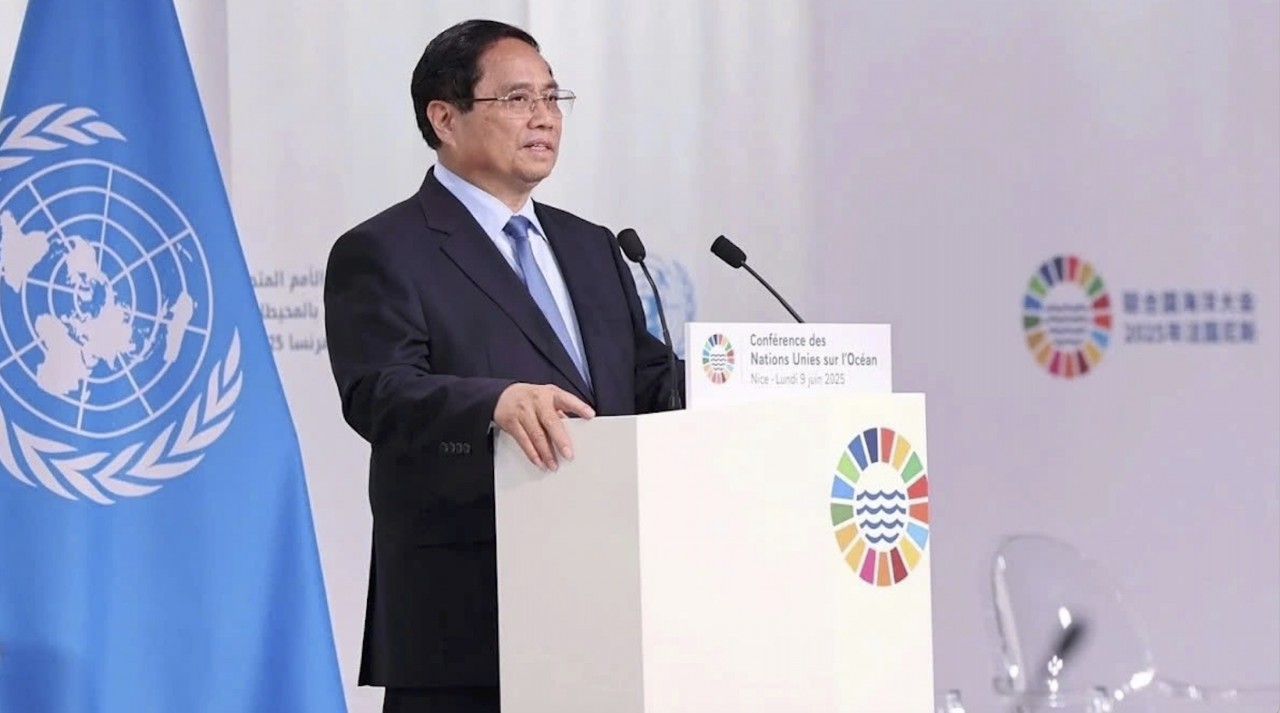 National
National
Vietnam News Today (Jun. 10): Vietnam Sets Forth ASEAN’s Roadmap to Tackle Ocean Challenges at UNOC 3
 National
National
Vietnam Values Friendship and Multifaceted Cooperation with Costa Rica
Popular article
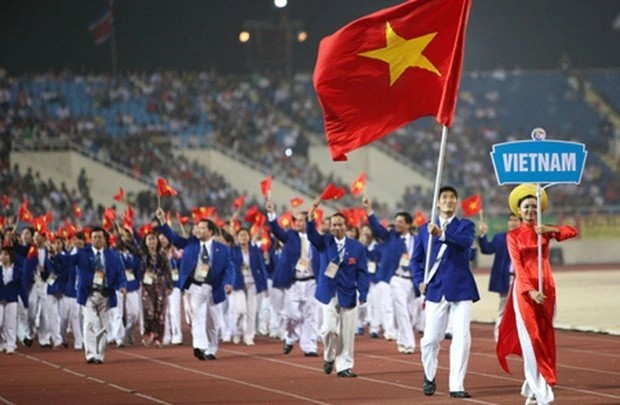 National
National
Vietnam News Today (Jun. 12): Vietnam to Compete in 45 Sports at SEA Games 33 in Thailand
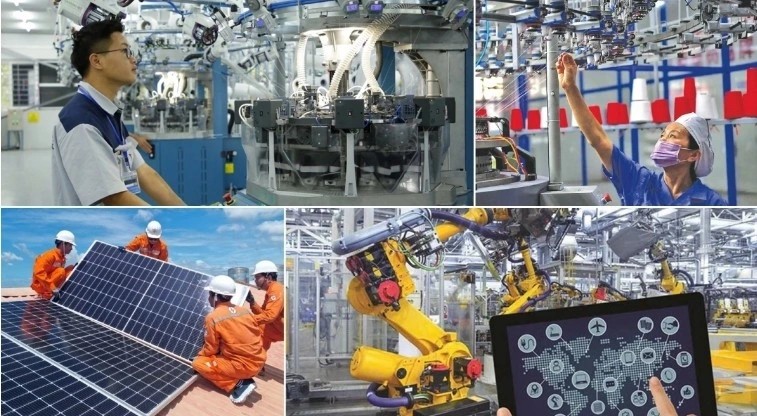 National
National
Vietnam News Today (Jun. 9): EVFTA Helps Strengthen Strategic Trust Between Vietnam, EU
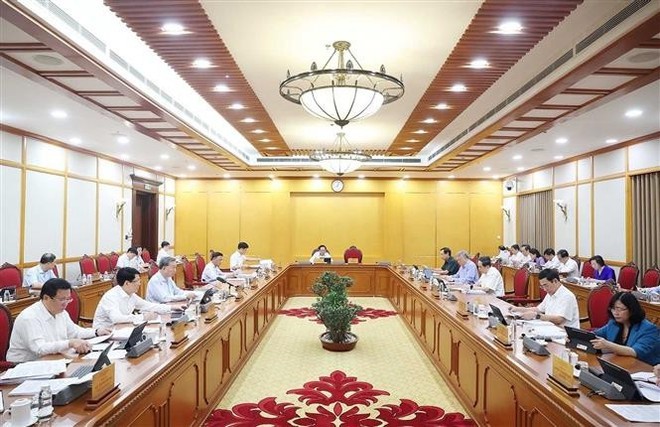 National
National
Vietnam News Today (Jun. 7): Prime Minister works with Estonian firms to accelerate projects in Vietnam
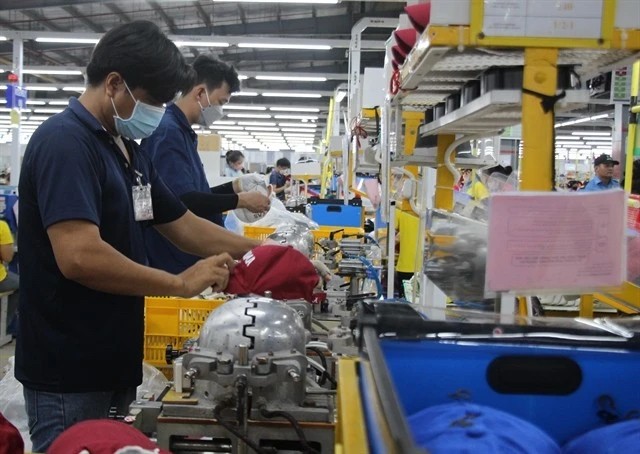 National
National




